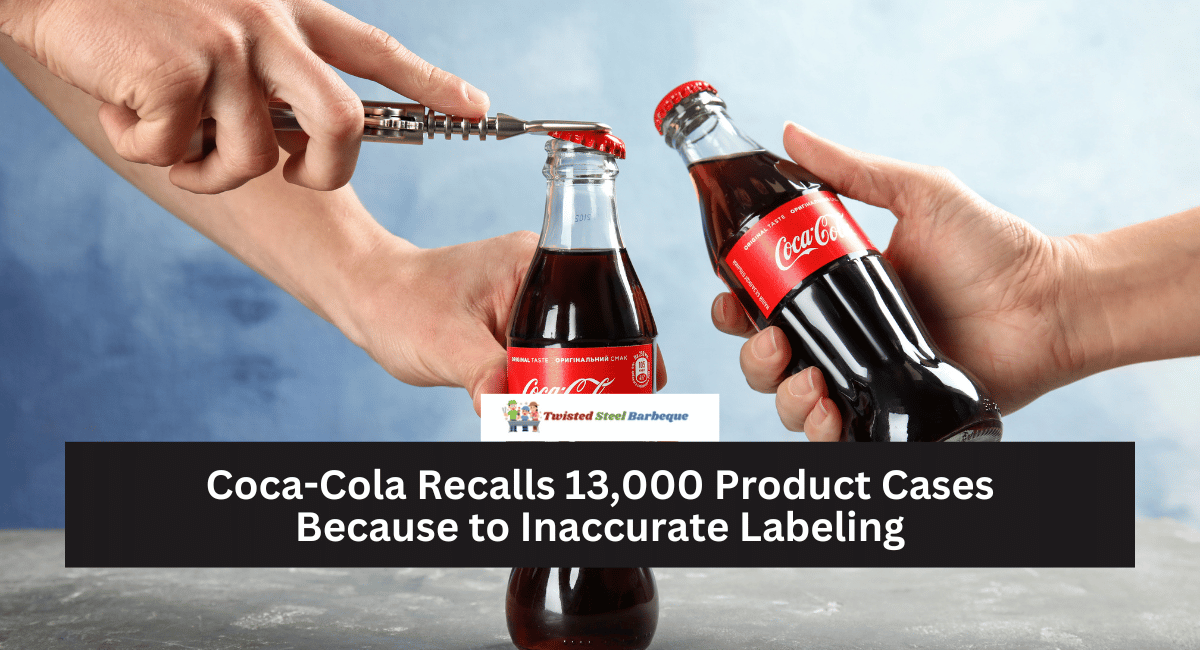The Coca-Cola Company recently revealed that the cans within these Minute Maid Zero Sugar Lemonade cartons were mislabeled, leading to the recall of specific 12-packs of the beverage. Sure cartons include standard Minute Maid Lemonade with sugar instead of sugar-free.
Customers who depend on the “Zero Sugar” claim for dietary or health-related reasons may become confused due to this labeling error.
Concerns have been expressed about the recall, particularly by those who must abstain from sugar due to medical illnesses like diabetes. This is a significant problem since, until it’s too late, customers cannot distinguish between the product and its package.
How Come This Is an Issue?
The primary problem arises from the 12-pack cartons’ outside packaging, marked “Minute Maid Zero Sugar Lemonade.” Nonetheless, the individual cans are accurately labeled as standard Minute Maid Lemonade with added sugar. Customers may purchase these cartons without understanding they are actually purchasing a sugar-containing product because they believe the exterior package.
This can provide issues for people who are watching their sugar consumption for medical reasons. Regular lemonade mistakenly consumed under the belief that it is sugar-free may cause transient health problems, such as a blood sugar increase.
People who have medical disorders like diabetes, who must closely watch their sugar consumption, may be most affected by this mislabeling blunder. To prevent further problems, The Coca-Cola Company decided to recall these goods.
Specifics of the Recall: Important Information
The U.S. Food and Drug Administration (FDA) designated the scenario as a Class II Recall, prompting an update on October 10, 2024, to the recall that The Coca-Cola Company had originally started on September 10, 2024.
According to this categorization, using or exposure to the product may have short-term or medically recoverable negative health consequences. Still, there is unlikely to be a significant danger to long-term health. This recall level indicates that, although there might be harm, most consumers are not at urgent risk of dying.
Minute Maid Zero Sugar Lemonade 12-packs that were incorrectly labeled were distributed to Indiana, Kentucky, and Ohio retailers. Therefore, if you reside in one of these states, check any cartons of this product you may have recently bought to ensure they are not included in the recall.
The Recalled Cartons: How to Recognize Them
To assist customers in determining if they have acquired any recalled goods, The Coca-Cola Company has given comprehensive guidelines on examining the cans and cartons. Here are some things to look out for if you bought Minute Maid Zero Sugar Lemonade in an impacted area:
- Carton UPC: 0 25000 12115 9 is the UPC for the 12-pack cartons that are being recalled. The UPC (Universal Product Code) is usually seen on the Carton’s side or bottom.
- The wording on the Carton: “CANNED UNDER THE AUTHORITY OF THE COCA-COLA COMPANY, ATLANTA, GA” is a statement printed on the Carton’s side.
- Dates of Expiration: The recalled boxes also display particular expiration date codes. Check the container for one of the following codes:
- FEB1725CNA
- FEB1725CNB
If your carton fits this description and is probably covered by the recall, you should take action to return it.
What Consumers and Retailers Should Do Next
If you bought any of the impacted 12-packs, the best course of action is to return the merchandise to the retailer. As is customary in recall situations, most shops will completely refund the returned goods. All cans should also be avoided, especially if you or anybody else in your home has dietary requirements or is sensitive to sugar.
Additionally, retailers in Ohio, Kentucky, and Indiana are asked to immediately search their inventory for mislabeled boxes and remove them from the shelves. If they want more guidance on handling the recall procedure and making sure the items are appropriately returned or disposed of, they may contact Coca-Cola.
The Effects of Using the Wrong Product on Your Health
Despite the recall’s Class II classification, which indicates that the danger is usually minimal, some people may still have negative health effects. Those who are attempting to avoid sugar for medical reasons may have unintended adverse effects from drinking the normal Minute Maid Lemonade, which includes sugar. This may consist of:
- Elevations in blood sugar: Especially dangerous for diabetics, elevated blood sugar levels can cause transient pain and consequences if left unchecked.
- Dietary imbalances: Drinking sugary drinks might throw off a person’s rigorous no-sugar diet and make it harder for them to reach their nutritional targets.
Notably, the matter does not pertain to the product’s safety or quality; most individuals may safely consume ordinary Minute Maid Lemonade. However, using the incorrect product might cause momentary but serious health issues for people who require a zero-sugar choice.
What Part Does the FDA Play in This Recall?
To ensure that manufacturers adhere to correct labeling and manufacturing requirements, the U.S. Food and Drug Administration (FDA) oversees food and beverage safety. The FDA assists in overseeing the recall procedure when it is discovered that a product has been mislabeled or may be dangerous.
To avoid any negative health impacts from the broad ingestion of the mislabeled lemonade, the FDA’s intervention has guaranteed that the matter was handled quickly and publicly.
Conclusion
This recall underscores the necessity of closely reading product labels, particularly when interacting with goods that have nutritional purposes, such as “zero-sugar” drinks.
Although consumers in Indiana, Kentucky, and Ohio should verify their recent purchases and look for the exact elements highlighted in this article, the Coca-Cola Company has moved quickly to remedy the issue.
Staying up to date on food and beverage recalls is imperative to ensure that you and your family are consuming safe items. Although there are no known serious risks associated with this problem, it is always advisable to err on the side of caution, particularly when dietary restrictions are involved.
READ MORE: This 2-Ingredient Snack Lets You Enjoy Chick-fil-A on a Sunday

